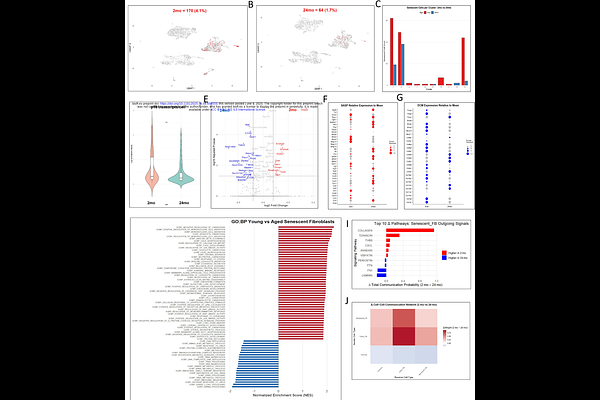Diminished and altered cellular senescence response in delayed wound healing of aging

Diminished and altered cellular senescence response in delayed wound healing of aging
Shvedova, M.; Thanapaul, R. J. R. S.; Wang, Q.; Shin, G. H.; Dhillon, J.; Roh, D. S.
AbstractThe transient upregulation of cellular senescence within wound tissues has been demonstrated to be an important biological process facilitating efficient tissue repair. Dysregulation of this transient wound-induced senescence-like response can result in impaired healing outcomes. Given the established age-related decline in tissue regenerative capacity, we hypothesized that alterations in this senescence response contribute to the delayed healing of cutaneous wounds in aged individuals. Our investigation demonstrated a significant delay in the closure of full-thickness dorsal skin wounds in aged mice compared to their young counterparts. Analysis of the wound microenvironment revealed a transient upregulation of senescence-associated markers (p16, p21, senescence-associated {beta}-galactosidase) and senescence-associated secretory phenotype factors in the wound tissue of young mice, a response that was markedly attenuated in aged mice. Single-cell RNA sequencing analysis of all cells isolated from day 6 wounds identified a distinct population of p16+/p21+/Ki67- senescent fibroblasts in young mice, characterized by a transcriptional signature indicative of pro-healing extracellular matrix production, a finding corroborated in human wound tissue from young donors. Crucially, in aged wounds, we observed a lower quantity of these senescent cells, a deficit compounded by a qualitative, age-dependent shift in their function, moving away from beneficial extracellular matrix remodeling towards a more detrimental pro-inflammatory state, which ultimately can contribute to the delayed wound healing.